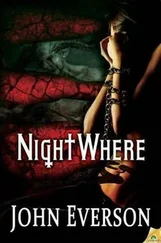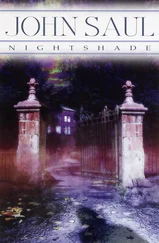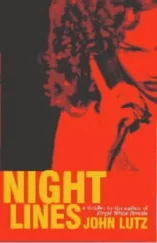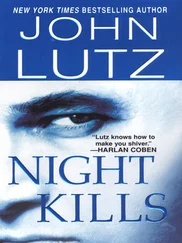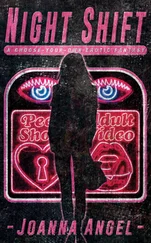After I’d finished, I sniffed, and wiped my cheeks, and blew my nose; and felt a little better. More time passed. Finally I gave a small sigh, and rose to my feet; walked over to a nearby bench and sat down.
I knew there were some things about her death I would never fully come to terms with. The shocking senselessness of it; the unanswered questions. But as I sat there, soaking up the atmosphere of calm and stillness around me, I reckoned I was slowly learning to live with it. The cry had done me good, cleared away a lot of pent-up grief and confusion. I still didn’t know why she’d died – but the turmoil inside me had faded now, leaving a sort of resigned acceptance. I did know that I’d loved her very much – and that was a memory I could treasure, and always carry with me.
Letting my gaze ease off across the cemetery, I found myself musing that she probably wouldn’t have wanted a burial – not a free-thinking, practical girl like Jenny. A clean cremation with minimal ceremony would have been much more her scene. I think the church service and the more permanent resting place had been for her mum’s benefit: she’d wanted it that way. It had been a nice service, though. I’d cried then, too.
Still, there were worse places to be remembered. My eyes kept roving over the neatly regimented headstones – picking out the bright patch of a fresh floral tribute here and there; pausing briefly on the occasional fellow-mourner among the graves. Coming to rest on the tramp standing beneath a yew tree some fifty yards along the roadway.
Watching me.
I blinked; frowned slightly. I couldn’t make out his face, not clearly, but I was sure he was watching me. He stood motionless, hands buried in the pockets of an old gabardine coat. His hair was long, and straggling. I got the impression that, if the wind changed, I would smell him from here.
His appearance wasn’t unusual, of course: over the past two years the number of homeless in the town had increased quite markedly, with people being attracted down here by empty promises of work. We had our share of squatters, and people who slept in doorways; and related problems like alcoholism and addiction too. We certainly dealt with the members of this underclass in Casualty often enough – not least the late Messrs Kaufmann and Johnston. What really made me angry was the truth behind Karen’s black joke about human experimentation: the fact that people didn’t seem to give a damn.
I hoped that I did: I certainly felt the shortcomings of the society in which I lived so comfortably, and felt them keenly. But ideals are easy; the acid test is how you relate to the individual vagrant, and all his dirt.
He was beginning to make me nervous.
I looked away, back towards Jenny’s grave; then across to the other side of the cemetery, contemplating the view with a show of interest.
After a minute or two, I looked back. He was still there. He hadn’t moved at all.
When I looked away this time, it was to see if anyone else was nearby – and close enough to lend moral support, if need be. But this part of the cemetery was deserted. Of course there were one or two other people around, but they were occupied with their own grief: heedless for a time of the wider world’s concerns.
The atmosphere had gone: the peace was sullied. And though loath to break off my communion with Jenny, I suddenly felt a pressing urge to get away, well clear of this empty place, and back where there were people round me. Rising to my feet, I glanced his way again. No reaction. I turned my back on him, and started walking towards the gates, with a briskness of stride that I hoped was suggestive of irritation rather than flight.
I got about ten yards before giving in to the temptation to look behind me. I had to see if he was following.
He wasn’t. He’d disappeared.
I stopped, and glanced round quickly. No sign of him, which I found vaguely unsettling – although there was the odd clump of bushes around that could easily provide cover, and he might even have gone to ground amid the headstones. The fact that he was no longer there was hardly a reassurance; the reverse, if anything. It’s like when you discover a large spider lurking motionless in your bedroom (if you’re an arachnophobe like me, anyway): so long as you can see it, you know where you are; but then your attention wanders, and when you glance back at the wall, it’s not there any more, and you’ve no idea where it’s gone to. But it’s around somewhere: and you’ve got to sleep in here tonight.
I hastily resumed my walk towards the gates. Reaching them, I turned back one more time. But the graveyard was as empty and unthreatening as it had been when I arrived, and the tattered man was nowhere to be seen.
I kept on walking, thoughtfully: a bit uncomfortable with my reaction, now that he was gone. Knowing bloody well I’d reacted like that before – and would do so again.
Take that time the other week.
It had been something of a fraught night. With the clock unhurriedly edging towards midnight-thirty, the department already reeked of sour alcohol; there were people just wandering around. Patients, relatives, a stray policeman. There was shouting and laughter; voices drunkenly amplified. Someone had just puked on the floor in cubicle six. Kathy was keeping amazingly calm, considering.
Most of the noise stemmed from a bunch of off-duty squaddies waiting in reception while one of their mates got his hand stitched. They were all in scruffy civvies, but there was still a depressing uniformity in their cropped scalps and loud, livid faces. They were uniformly pissed, as well.
It had been hard enough to concentrate with just that row going on; we didn’t need chatting up as well. Eventually Mike (whom no one tried to chat up) managed to usher them out along with their patched-up friend, ignoring shouts of ‘you Mick poufter’ and similar valedictions. I’d caught Brenda’s eye, and we’d shared a heartfelt sigh of relief.
Mike came back, muttering something about the bloody IRA never being around when they were needed.
Five minutes later, there was a dog in the department.
Bren almost dropped the tetanus set she’d been preparing as the Alsatian stuck its nose around the utility room door before padding off down the corridor. I was trying to keep order in the cubicles, and turned at the sound of her surprised little gasp – looking in through the opposite doorway. I saw, swore, and went after it – but someone down at reception was already shouting ‘Carl! Heel!’, and the dog – it was an awfully big dog – was disappearing back in that direction even as I reached the main corridor. Determinedly I followed.
By the time I got there it was back with its owner, sitting at his feet as he stroked its dirty fur. The man was slouched in one of the chairs – they were mostly empty now – and looked me challengingly in the face as I came through. And I stared irritably back at him, taking in the state of his clothes – the patched, faded flak jacket; his stubble beard, and unwashed hair, drawn back into a ponytail. I guessed he was one of the Travellers.
We’d been having problems with the Travellers of late.
Or the hippies, as some called them; or gyppos, or worse. It seemed they came and went with the seasons; wandering in and pitching camp; being evicted and moving on. Quite a crowd had decided to winter in our town this time around; people were starting to complain.
‘Look, if you can’t keep that dog under control, you’ll have to leave,’ I told him, tightly.
He shrugged, didn’t reply. His eyes hadn’t left my face.
‘Can I help you?’ I went on: quite formally, but with no politeness at all.
‘You’re really welcoming tonight,’ he muttered.
‘We’re busy: have you got a problem or … ?’
Читать дальше



